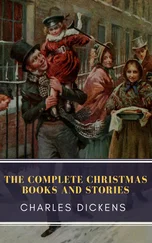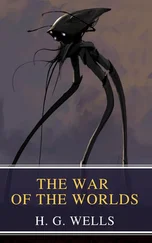Flu. O—“As true as truest horse, that yet would never tire.”
[Enter Puck, and Bottom with an ass’s head.]
Bot. “If I were fair, Thisby, I were only thine.”
Quin. O monstrous! O strange! We are haunted. Pray, masters, fly, masters! Help!
[Exeunt Quince, Snug, Flute, Snout, and Starveling.]
Puck.
I’ll follow you, I’ll lead you about a round,
Through bog, through bush, through brake, through brier:
Sometime a horse I’ll be, sometime a hound,
A hog, a headless bear, sometime a fire,
And neigh, and bark, and grunt, and roar, and burn,
Like horse, hound, hog, bear, fire, at every turn.
Exit.
Bot. Why do they run away? This is a knavery of them to make me afeard.
Enter Snout.
Snout. O Bottom, thou art chang’d! What do I see on thee?
Bot. What do you see? You see an ass-head of your own, do you?
[Exit Snout.]
Enter Quince.
Quin. Bless thee. Bottom, bless thee! Thou art translated.
Exit.
Bot. I see their knavery. This is to make an ass of me, to fright me, if they could; but I will not stir from this place, do what they can. I will walk up and down here, and I will sing, that they shall hear I am not afraid.
[Sings.]
The woosel cock so black of hue,
With orange-tawny bill,
The throstle with his note so true,
The wren with little quill—
Tita. [Awaking.]
What angel wakes me from my flow’ry bed?
Bot. [Sings.]
The finch, the sparrow, and the lark,
The plain-song cuckoo grey,
Whose note full many a man doth mark,
And dares not answer nay—
for indeed, who would set his wit to so foolish a bird? Who would give a bird the lie, though he cry “cuckoo” never so?
Tita.
I pray thee, gentle mortal, sing again.
Mine ear is much enamored of thy note;
So is mine eye enthralled to thy shape;
And thy fair virtue’s force (perforce) doth move me
On the first view to say, to swear, I love thee.
Bot. Methinks, mistress, you should have little reason for that. And yet, to say the truth, reason and love keep little company together now-a-days. The more the pity that some honest neighbors will not make them friends. Nay, I can gleek upon occasion.
Tita. Thou art as wise as thou art beautiful.
Bot. Not so, neither; but if I had wit enough to get out of this wood, I have enough to serve mine owe turn.
Tita.
Out of this wood do not desire to go;
Thou shalt remain here, whether thou wilt or no.
I am a spirit of no common rate;
The summer still doth tend upon my state;
And I do love thee; therefore go with me.
I’ll give thee fairies to attend on thee;
And they shall fetch thee jewels from the deep,
And sing while thou on pressed flowers dost sleep.
And I will purge thy mortal grossness so,
That thou shalt like an aery spirit go.
Peaseblossom! Cobweb! Moth! and Mustardseed!
Enter four Fairies [Peaseblossom, Cobweb, Moth, and Mustardseed].
[Peas.]
Ready.
[Cob.]
And I.
[Moth.]
And I.
[Mus.]
And I.
[All.]
Where shall we go?
Tita.
Be kind and courteous to this gentleman,
Hop in his walks and gambol in his eyes;
Feed him with apricocks and dewberries,
With purple grapes, green figs, and mulberries;
The honey-bags steal from the humble-bees,
And for night-tapers crop their waxen thighs,
And light them at the fiery glow-worm’s eyes,
To have my love to bed and to arise;
And pluck the wings from painted butterflies,
To fan the moonbeams from his sleeping eyes.
Nod to him, elves, and do him courtesies.
[Peas.] Hail, mortal!
[Cob.] Hail!
[Moth.] Hail!
[Mus.] Hail!
Bot. I cry your worships mercy, heartily. I beseech your worship’s name.
Cob. Cobweb.
Bot. I shall desire you of more acquaintance, good Master Cobweb. If I cut my finger, I shall make bold with you. Your name, honest gentleman?
Peas. Peaseblossom.
Bot. I pray you commend me to Mistress Squash, your mother, and to Master Peascod, your father. Good Master Peaseblossom, I shall desire you of more acquaintance too. Your name, I beseech you, sir?
Mus. Mustardseed.
Bot. Good Master Mustardseed, I know your patience well. That same cowardly, giant-like ox-beef hath devour’d many a gentleman of your house. I promise you your kindred hath made my eyes water ere now. I desire you [of] more acquaintance, good Master Mustardseed.
Tita.
Come wait upon him; lead him to my bower.
The moon methinks looks with a wat’ry eye;
And when she weeps, weeps every little flower,
Lamenting some enforced chastity.
Tie up my lover’s tongue, bring him silently.
Exeunt.
¶
Enter King of Fairies [Oberon].
Obe.
I wonder if Titania be awak’d;
Then what it was that next came in her eye,
Which she must dote on in extremity.
[Enter Puck.]
Here comes my messenger. How now, mad spirit?
What night-rule now about this haunted grove?
Puck.
My mistress with a monster is in love.
Near to her close and consecrated bower,
While she was in her dull and sleeping hour,
A crew of patches, rude mechanicals,
That work for bread upon Athenian stalls,
Were met together to rehearse a play
Intended for great Theseus’ nuptial day.
The shallowest thick-skin of that barren sort,
Who Pyramus presented, in their sport,
Forsook his scene, and ent’red in a brake;
When I did him at this advantage take,
An ass’s nole I fixed on his head.
Anon his Thisby must be answered,
And forth my mimic comes. When they him spy,
As wild geese that the creeping fowler eye,
Or russet-pated choughs, many in sort
(Rising and cawing at the gun’s report),
Sever themselves and madly sweep the sky,
So, at his sight, away his fellows fly;
And at our stamp, here o’er and o’er one falls;
He murther cries, and help from Athens calls.
Their sense thus weak, lost with their fears thus strong,
Made senseless things begin to do them wrong,
For briers and thorns at their apparel snatch;
Some sleeves, some hats, from yielders all things catch.
I led them on in this distracted fear,
And left sweet Pyramus translated there;
When in that moment (so it came to pass)
Titania wak’d, and straightway lov’d an ass.
Obe.
This falls out better than I could devise.
But hast thou yet latch’d the Athenian’s eyes
With the love-juice, as I did bid thee do?
Puck.
I took him sleeping (that is finish’d too)
And the Athenian woman by his side;
That when he wak’d, of force she must be ey’d.
Enter Demetrius and Hermia.
Obe.
Stand close; this is the same Athenian.
Puck.
This is the woman; but not this the man.
Dem.
O, why rebuke you him that loves you so?
Lay breath so bitter on your bitter foe.
Her.
Now I but chide; but I should use thee worse,
For thou (I fear) hast given me cause to curse.
If thou hast slain Lysander in his sleep,
Читать дальше












![Уильям Шекспир - The Works of William Shakespeare [Cambridge Edition] [Vol. 1 of 9]](/books/746589/uilyam-shekspir-the-works-of-william-shakespeare-c-thumb.webp)